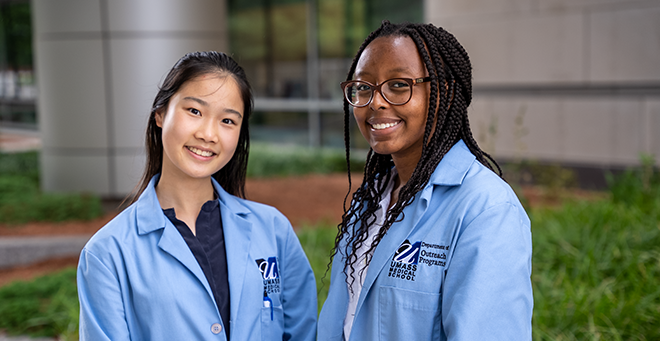
Shalom Njau, the daughter of immigrants from Kenya, is a rising junior in the biotechnology track at Worcester Technical High School who wants to be a doctor and scientist.

Shalom Njau, the daughter of immigrants from Kenya, is a rising junior in the biotechnology track at Worcester Technical High School who wants to be a doctor and scientist.